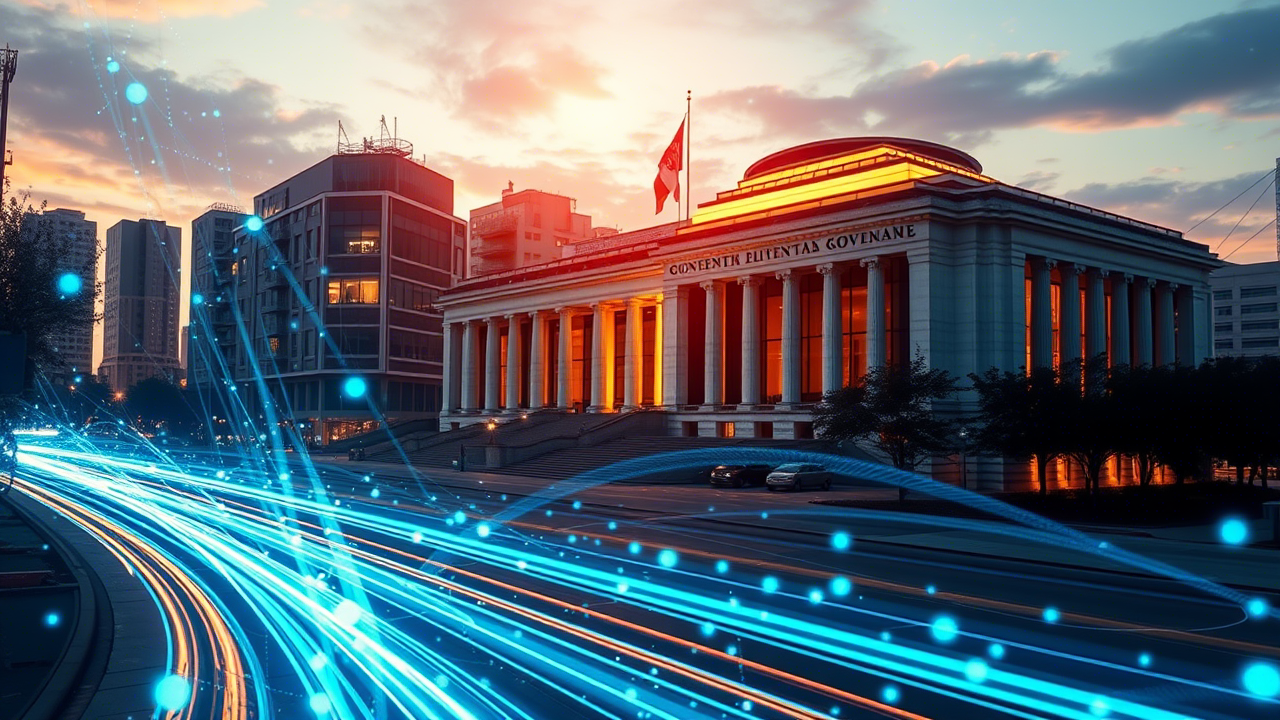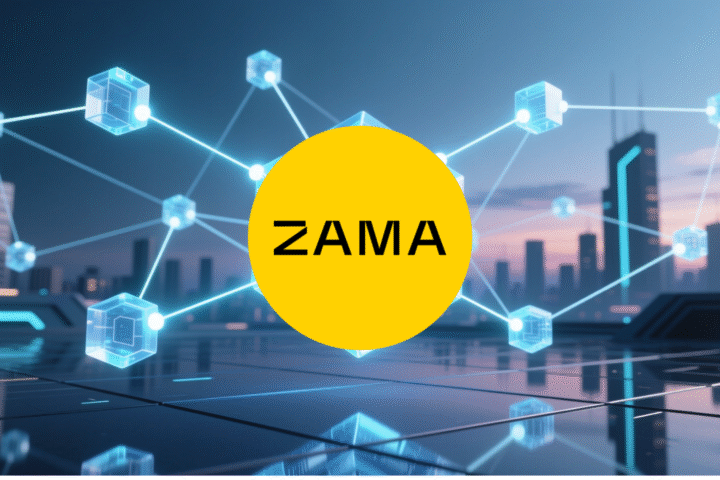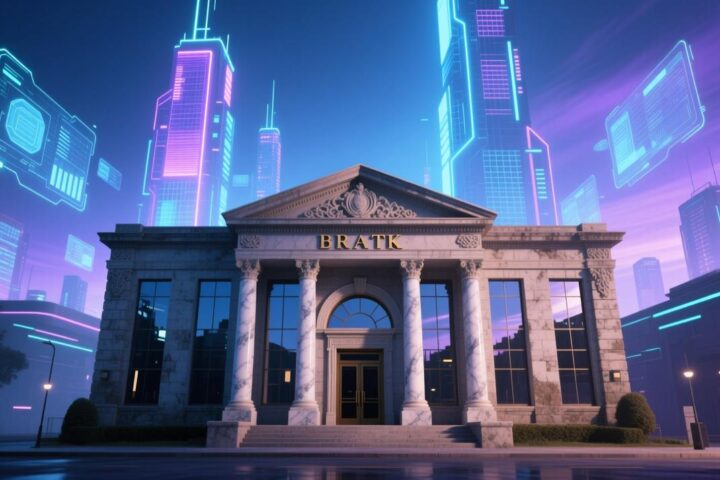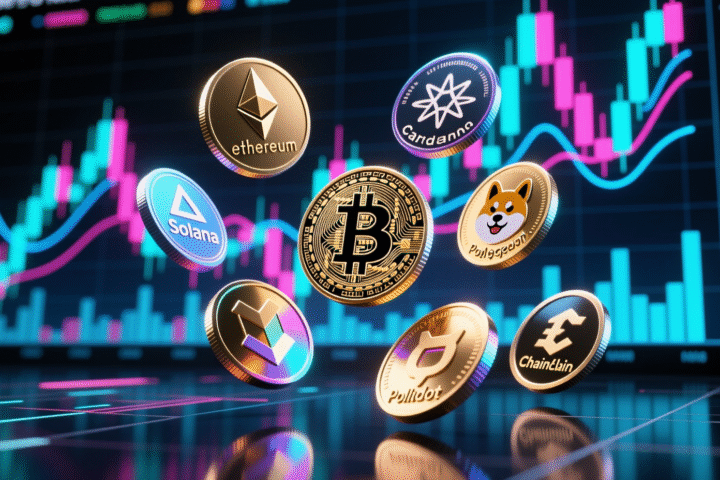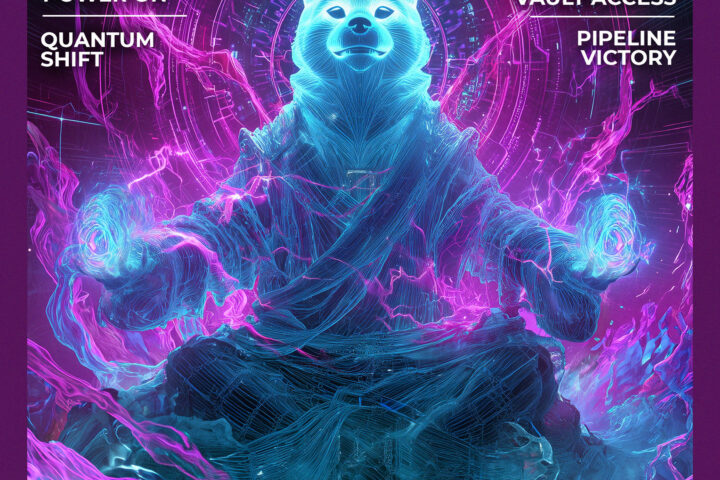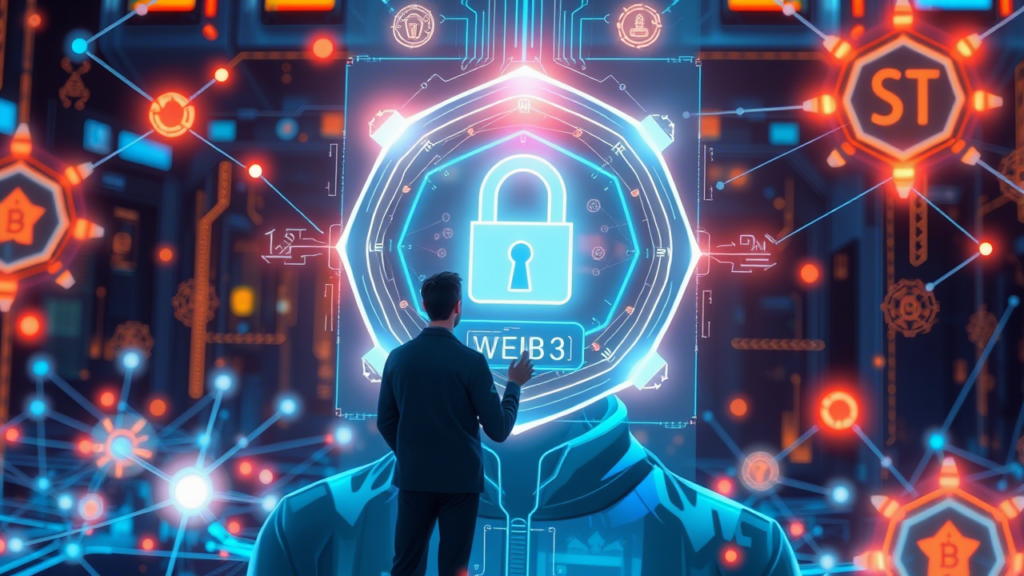We’re all used to the old-school way of governance—whether in corporations, governments, or nonprofits, where a few people at the top hold the reins. But what if there was a new way? A way where everyone has a voice? Enter DAOs (Decentralized Autonomous Organizations). Imagine a world where decision-making isn’t controlled by a handful of people but is spread out across a whole community, all thanks to the power of blockchain. That’s what DAOs are bringing to the table: a system where every member can help shape the future by voting on decisions, suggesting ideas, and actually having a say in how things work.
Now, you’re probably thinking, “Wait, no way—this could totally change everything, right?” And you’d be right! DAOs are setting the stage for a major shift in governance. Whether it’s businesses, political systems, or even social causes, DAOs could soon challenge traditional power structures and bring decision-making back to the people. Let’s take a look at how these decentralized powerhouses could totally shake things up and maybe even create a world where you actually get a say in how things are run.
What is a DAO?
Alright, let’s break it down! A DAO is basically a new kind of organization that runs on the blockchain, with no central authority calling the shots. Imagine a business or community where decisions aren’t made by one boss, CEO, or board—everyone gets a vote! It’s like a giant, online democracy, where your voice truly matters.
So, how does it work? Instead of a traditional hierarchy, DAOs are powered by smart contracts, which are self-executing agreements on the blockchain. These contracts automatically carry out the rules and decisions without the need for a middleman. No need for human intervention—just code that makes everything run smoothly.
Now, let’s talk about the key players in a DAO:
- Tokens: These are the currency of the DAO. They’re often given to members as a way to participate and make decisions. Think of them like your ticket to the decision-making table.
- Voting Mechanisms: In a DAO, members vote on proposals that could affect everything from the direction of the project to how funds are spent. The more tokens you hold, the more weight your vote has—so it’s like using your “power” for good (or bad, depending on how you vote!).
- Smart Contracts: These are the backbone of a DAO. They are the pre-programmed rules that automate everything from voting to transactions, ensuring that the organization runs according to its agreed-upon guidelines.
- Community Participation: The most important part of any DAO? The people! DAOs are all about the community. Every member is encouraged to participate, voice their opinion, and vote on key decisions.
In short: DAOs are like an online organization, where everyone has an equal say, and everything is managed transparently, thanks to blockchain and smart contracts. No more top-down decision-making—just power to the people!
The Rise of DAOs in Recent Years
DAOs haven’t always been around, but thanks to blockchain and cryptocurrencies, they’ve become a hot topic in recent years. These technologies opened the door to decentralized governance, allowing DAOs to flourish. Before blockchain, organizing an entity without a central authority was almost impossible. But with the power of blockchain, DAOs have become a real alternative to traditional structures, offering transparency, trust, and, most importantly, decentralization.
A few notable DAOs have already shown the world how it’s done:
- MakerDAO: A major player in the decentralized finance (DeFi) space, MakerDAO helps govern the DAI stablecoin, allowing members to vote on critical issues like interest rates and collateral types. It’s one of the best examples of how a DAO can manage a financial system.
- The DAO: Although it made headlines for all the wrong reasons (thanks to a big hack back in 2016), it’s still an important milestone in the history of DAOs. It was one of the first projects to explore the potential of decentralized funding and governance.
- Aragon: This DAO platform allows anyone to create their own decentralized organization, making it easier to manage projects and assets without a central authority. It’s one of the driving forces behind the growing DAO movement.
And it’s not just about finance—DAOs are popping up everywhere! Whether it’s in the tech industry, the art world, or even social causes, DAOs are creating new ways for people to work together without the typical top-down structure.
- In finance, DAOs are driving innovation in lending, insurance, and investments, letting users vote on policies and governance decisions that affect their investments.
- In tech, companies are using DAOs to make collaborative decisions on software development, product features, and company direction—all with community input.
- In art, DAOs allow artists to collaborate on projects and collectively own the rights to their work, with profits shared based on contributions.
- In social causes, DAOs enable groups to fund and manage charitable projects, where every member has a say in how resources are distributed.
It’s clear: DAOs are no longer just a niche idea for crypto enthusiasts—they’re making waves across a variety of industries. With more and more people jumping on the bandwagon, DAOs could soon be reshaping the way we work, collaborate, and govern ourselves.
How DAOs Work
So, how do DAOs actually function? It’s not all about crypto jargon and complex tech—at their core, DAOs are simply about making decisions as a community. Here’s how it works:
- Proposals: Everything starts with an idea, and in a DAO, any member can put forward a proposal. It could be anything from suggesting a new feature for a project to changing the way the DAO is governed. The point is, everyone gets a voice!
- Voting: Once a proposal is made, it’s time for the community to vote. But unlike traditional organizations, the power in DAOs isn’t held by a few executives—it’s spread across the entire community. That means anyone with tokens (the DAO’s voting currency) can have a say in the decision. Voting power is usually proportional to the number of tokens a member holds, so if you own more, your vote counts for more.
- Community Input: But it’s not just about casting votes. DAOs are built on collaboration, so discussions are a huge part of the process. Before a proposal is voted on, members can discuss it, ask questions, and refine the idea together. This makes the decision-making process more transparent and participatory than traditional governance models.
For example, let’s say a DAO that’s focused on art decides to fund a new digital art project. A member might submit a proposal suggesting the budget and scope of the project. The community then discusses the details—should the budget be higher? Should more artists be involved? After some back-and-forth, the proposal is ready for a vote.
If enough token holders support the proposal, it’s approved, and the project can go ahead. This voting and decision-making process ensures that everyone involved has a fair chance to influence the outcome, making it a truly decentralized and democratic process.
Related: Zama to Launch First-Ever Private Token Auction on Live Blockchain
In short, DAOs aren’t just about voting—they’re about giving the power back to the people, where everyone has the chance to participate, share ideas, and help shape the direction of the organization. Pretty cool, right?
Advantages of DAOs
So why are DAOs causing such a buzz? Well, they offer a range of benefits that traditional organizations just can’t match. Let’s break them down:
Transparency
One of the coolest things about DAOs is how open they are. Thanks to the blockchain, all transactions and decisions are recorded on an open ledger, meaning anyone can check what’s happening at any time. No shady business or secret meetings—everything’s out in the open for all members to see and verify.
Inclusivity
Unlike traditional organizations where your ability to participate often depends on location or who you know, DAOs are completely inclusive. As long as you have tokens, you can get involved, no matter where you are in the world or what your background is. It’s like a global community of people all working toward the same goal—everyone has a seat at the table!
Efficiency
Forget about all the paperwork and delays you’d find in traditional organizations. In DAOs, smart contracts handle a lot of the work for you. These self-executing contracts automatically carry out tasks when conditions are met, like making payments or executing decisions, without the need for middlemen. It’s a streamlined process that cuts out the red tape.
Reduced Corruption
Without a central authority calling all the shots, DAOs are way less vulnerable to corruption or biased decision-making. Decisions are made by the community, and everything is recorded transparently on the blockchain. This decentralization means no one person or small group can easily sway the outcomes in their favor, which makes DAOs less prone to manipulation.
All of these advantages combined make DAOs a powerful tool for creating fairer, more transparent, and efficient organizations where everyone has an equal say. Whether it’s voting on a new idea or just tracking how funds are spent, DAOs are changing the game in a way that benefits everyone involved.
Challenges and Limitations of DAOs
While DAOs are shaking up the way we think about organizations, they’re not without their challenges. Here’s a look at some of the hurdles that DAOs still face:
- Scalability: While DAOs are fantastic for small to medium-sized groups, the question remains: can they handle large-scale governance? As the community grows, the sheer volume of decisions, proposals, and votes can become overwhelming. Will the system still run smoothly, or will things start to slow down? It’s something that the DAO space is working on, but scalability remains a concern for now.
- Legal Issues: DAOs are still in a gray area when it comes to traditional legal systems. Since there’s no central authority, who’s legally responsible if something goes wrong? How do courts deal with disputes or enforce rules? These legal challenges can complicate the widespread adoption of DAOs in industries that rely heavily on regulation and formal contracts.
- Security Concerns: DAOs run on smart contracts, and while these are super-efficient, they can also be vulnerable. A flaw in the code could open the door for hackers or cause the system to malfunction. High-profile incidents like The DAO hack from 2016 show that if a smart contract isn’t thoroughly tested, it can be exploited. The security of smart contracts and DAOs in general remains a critical issue that needs constant attention.
- Coordination: Here’s a big question: can a global, decentralized community effectively make decisions? In theory, DAOs are all about collective decision-making, but in practice, coordinating large groups from different time zones and backgrounds can be tricky. Getting everyone on the same page and ensuring that decisions are made quickly and efficiently is one of the ongoing challenges for DAOs.
Despite these challenges, DAOs are still growing and evolving, with solutions being worked on to tackle scalability, security, and legal hurdles. The potential for DAOs to revolutionize governance is huge, but it’s clear that there’s still a long way to go before they’re perfect. However, with innovation moving fast, it’s exciting to see how these issues will be solved!
The Future of DAOs in Governance
The future of DAOs in governance is looking pretty exciting! While DAOs are still in their early stages, their potential to disrupt how we organize and make decisions is enormous. Here’s a glimpse into how DAOs could shape the future of various sectors:
Related: Smart Contracts Are Powering a New Wave of Finance: Here’s How
Political and Corporate Sectors
Imagine a world where elections and corporate decisions aren’t made by a few individuals at the top, but by the community at large. In the political realm, DAOs could allow citizens to directly vote on policy decisions, bypassing traditional party politics and creating a more transparent, inclusive system. In the corporate world, DAOs could replace outdated hierarchical structures, giving every employee a say in decisions. This shift could lead to a more collaborative, fair, and transparent way of governing.
Non-Profit and Creative Industries
Non-profits could become more decentralized with DAOs, allowing a wider range of people to participate in decision-making, resource distribution, and project funding. Creative industries like art, music, and entertainment could also see a massive shift, with artists and creators able to retain ownership of their work and receive direct support from fans or supporters through decentralized funding and governance. DAOs would empower creators to work on their own terms and engage directly with their communities.
Reshaping Traditional Governance Models
The beauty of DAOs lies in their potential to reshape how governance works. Instead of relying on a top-down model with a central authority, DAOs could help shift us toward a more distributed and inclusive form of governance. This could mean elections where everyone has a say, companies that are owned by the people who contribute to them, and policies that reflect the needs and desires of the community.
In a world that’s becoming increasingly decentralized, the role of DAOs in shaping governance models will only grow. As technology advances and people become more familiar with DAOs, it’s possible that they’ll become the default way of organizing, leading to a more democratic, fair, and transparent world. DAOs might just be the blueprint for the future of governance!
What’s Next for DAOs?
As DAOs continue to grow and evolve, there’s a lot to look forward to! While DAOs are already reshaping how we think about governance, there’s still plenty of work to be done before they can reach their full potential. Here’s what’s on the horizon:
- Technological Advancements for Scaling: For DAOs to scale and handle larger, more complex decision-making, there are still some key technological improvements needed. Blockchain, which powers DAOs, is getting faster and more efficient, but it still needs to become even more scalable to handle millions of users and transactions seamlessly. Add to that the potential role of Artificial Intelligence (AI) in enhancing decision-making processes, and we’re looking at a future where DAOs are not only decentralized but also super-efficient and intuitive.
- The Role of Regulation and Government Intervention: As DAOs continue to grow, governments and regulators will need to step in to provide clarity on legal and tax frameworks. Without regulation, it’s difficult to ensure that DAOs can thrive in a secure and predictable environment. However, it’s likely that regulators will eventually find ways to accommodate DAOs within the broader legal landscape, ensuring that they can operate smoothly and safely in various sectors.
- Evolving to Address Challenges: While DAOs are already revolutionary, they’re not without their challenges. Over the coming years, DAOs will likely evolve to address issues like scalability, security, and coordination. New tools and processes will be developed to make participation easier, decision-making more efficient, and the systems more secure. This evolution will help DAOs become even more user-friendly and effective at achieving their goals.
- Widespread Adoption in Mainstream Industries: As more businesses and organizations explore DAOs, we’re likely to see a wave of mainstream adoption. Industries like finance, tech, and even healthcare could be transformed by DAOs, enabling more decentralized, transparent, and efficient governance models. DAOs could be the key to unlocking new levels of collaboration and innovation across sectors, creating a future where everyone has a voice in how things are run.
In short, DAOs are just getting started, and the next few years will be crucial in determining how they evolve and integrate into the larger world. The future is bright for decentralized governance, and DAOs could be the engine that drives us toward a more democratic, efficient, and transparent world. Keep an eye out—DAOs are here to stay!
The Future of Governance with DAOs
In the world of governance, DAOs are shaking things up in the best way possible. They offer a fresh take on how decisions can be made, putting power in the hands of the people and removing the need for a central authority. With DAOs, the potential to reshape everything from corporate structures to political systems is massive, giving people more control, transparency, and even the opportunity to profit from their participation.
As DAOs grow and evolve, it’s important to stay informed about how they work and the impact they’re having. While they’re not perfect just yet, their influence is growing, and they could play a pivotal role in the future of governance. Understanding how DAOs function will help you navigate the changing landscape and be part of a more decentralized, equitable world.
So, are DAOs truly the future of governance? It’s still early days, and while they have incredible potential, there are challenges to overcome. But one thing’s for sure: the idea of a decentralized, community-driven system is here to stay. As technology advances and adoption grows, DAOs could very well be the key to a new era of governance—where power is in the hands of the people, not just a select few. The journey is just beginning, and the best part is, you’re along for the ride!

